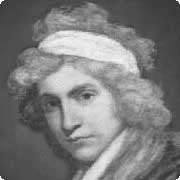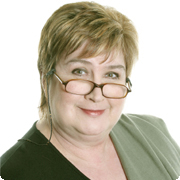in your dreams!
The
R£wards survey from the Institute of Directors (IoD) shows that female executives are still getting paid less than their male colleagues - suprise, suprise - and also work longer hours......
“Although there has been an overall decrease from 24% last year, to 19% this year, this is hardly grounds for celebration. Even those who break through the glass ceiling and reach board level will find there is another roof over their heads. The pay gap has often been justified on the basis that women work shorter hours. Our survey refutes that suggestion. Not only are women directors being paid less, they are also working longer hours.”
Female directors now earns an average of £60, 000 compared with the average male director’s basic pay of £74, 028 and the biggest gaps are in the private services and voluntary sectors where female pay was 25% below that of their male counterparts.
To make matters worse, the research shows that female managing directors in medium and large companies are actually working longer hours than their male counterparts – 51.25 hours per week, (compared with 50 hours for men in small to medium sized companies) and 57 hours a week compared to 55 in larger companies.
Meg Munn MP made a speech in October saying -"In parliament there have only ever been 291 women MPs. There are more than 500 men there today. That’s nearly 90 years after the time when women could first stand for parliament. Today still less than 1 in 5 MPs are women. Less than 30 per cent of local councillors are women. In business less than 11 per cent of directors of the FTSE companies are women. Only 1 per cent of those in construction trades are women and in 2004 just 22 young women took up plumbing apprenticeships in England compared to more than 3000 young men."
She goes on to say "For public appointments it’s a bit better - 35 per cent are held by women but only just over 6 per cent by ethnic minority women. " However, I read a special supplement in Health Service Journal in September, that I meant to post about a while ago. It listed "
the 50 people with the greatest influential on today's NHS policy and practice." Of the 50 - only 9 are women. I found this truly shocking. That is considerably less than the 35 percent (just over one third) that Munn suggests. The list had Patricia Hewitt at number 2 - Secretary of State for Health. Dame Carol Black who is at number 8 - National Director of Health and Work and Gill Morgan at number 15 Chief Executive of the NHS confederation. The other 6 women all come in the bottom half of the list.
The
Women and Work Commission was set up to examine the persistent problem of the pay and opportunities gap. Their final report, which came out earlier this year, contained a number of recommendations about the barriers to informed choice at school, combining work and family life, lifelong learning and training, and improving workplace practice. It found that the pay gap between part-time women workers and full-time male workers is 41%.
Meg Munn was promoting the new
Commission for Equality and Human Rights. (CEHR) The new Commission for Equality and Human Rights will inherit the powers of the three existing Commissions who focus on equality relating to gender and race and rights for disabled people and will deliver the new Equality Act (2006). It will open it's doors in October 2007. In the meantime the
Equal Opportunities Commission continues.
There is certainly a long way to go and the CEHR needs to have a lot of power and support to have any effect on what is clearly an entrenched problem. The new commission says "we want to talk to as many groups, organisations and companies as possible to establish the relationships and engagement that will be essential for the Commission's success. Please contact us if you have any questions on the CEHR during this transition phase, or if you are holding an event and would like a member of the transition team to speak; or you are would like the latest update on the CEHR, please use the form below to get in touch."
Will it challenge the patriarchy I wonder? What do you think?








